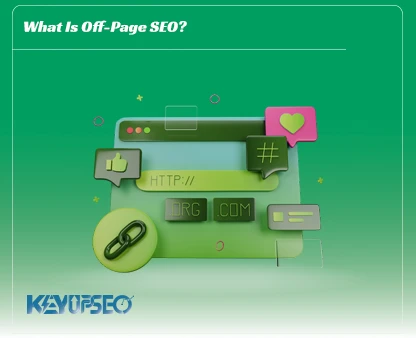
Common mistakes in choosing and researching keywords
Choosing the keywords you want to rank for in search engines is the first and most important step, and you should avoid making mistakes along the way.
7 common mistakes in choosing website keywords is the subject of this article, and we will discuss common mistakes in keyword research.
If you don't know the right way to do keyword research, it can be a very tedious task. If you go down the wrong path, all your efforts can be wasted, so you should know the common mistakes in keyword selection.
In order not to get into trouble in this way, you should know what mistakes you should avoid while researching and researching keywords. Now join us at Keyupseo to explain to you the common mistakes that people make when researching and choosing keywords.
By avoiding these mistakes, you can adopt a precise strategy for your keyword research.
1- You are not doing keyword research properly
You probably think you don't need to do extensive and in-depth research to find keywords, you just need to know what your audience is searching for, right?
It is better to spend time getting to know your audience and their conversational language. You must know what language and expressions your customers use.
The result of keyword research should be an extensive and comprehensive list of words and phrases that you want to rank high in the search results.
If you need to buy website traffic in the SEO process, you can do it in the Keyupseo user panel and increase site traffic.
Be sure to update your list at regular intervals, as over time not only your audience but also your business needs change, and you need to focus on them.
These changes may affect your keyword strategy.
2- You target unusual keywords
Try to invest in common and real keywords. Some fields of work are very competitive, and it is very difficult to get high ranks in fields that are highly competitive.
If you are starting SEO, you should not focus on competitive keywords, instead you can choose long-tail keywords that have a higher chance of ranking.
Long-tail keywords usually have higher conversion rates than main keywords.
For example, if you have a site about fitness, it will be very difficult to get high rankings for the term “fitness”. Think about what aspects of your blog or website are unique, and try to rank for those topics.
Maybe you are writing an article about buying a suitable laptop for design and Photoshop. In this situation, using long keywords like buy laptop for Photoshop can be a great strategy.
In such a situation, you should look for words and phrases such as buying a suitable laptop for Photoshop or buying a suitable laptop for design and create content for them.
If you have a long history in your field and are ranking high for long-tail keywords, you can also target some competitive keywords.
Remember that ranking for your primary keywords should be part of your long-term keyword research strategy.
3- You use irrelevant keywords
The keywords you target should be the same as the queries your customers are looking for. You should always use the language and tone that your audience uses.
Suppose you are selling mobile phones. In traditional marketing, you are known as mobile phone sales.
However, Internet users may not use this phrase in their searches and replace it with another word, such as buying a Samsung phone or buying an Apple phone. So you should know what words your audience uses to search for their needs.
4- Instead of focusing on plural words, you focus on singular words
You should pay attention to whether your target keywords are plural or singular.
If you want to rank in search engines for a plural word; You should consider this issue. You can easily check this in Google Trend, where the specific word is more popular in plural or singular. The use of words in plural or singular form depends on your business strategy.

5- You are looking for keywords that do not have specific traffic
Long-Tail Keywords are the best and most excellent way to start a keyword strategy.
These words have less traffic, but have a higher chance of converting a user into a customer. However, if the keyword you are using is very specific and there is no traffic for it, you can be sure that it will not help your SEO.
We recommend that you first make sure you are targeting long-tail keywords that have the least amount of traffic!
6- You forget to evaluate keywords
If you want to rank in the search results for a specific keyword, it is better to evaluate your ranking process.
You need to know if searchers are finding your content in search results or not!
To do this, you must enter your exact keyword in the Google search engine from time to time and check the results. Just look for your site page in the search results.
If you don't evaluate your site's position for a keyword, you won't know if you should invest in competitive keywords or spend your time on long tail keywords.
7- You focus on only one keyword in each post
If you're writing good content for your blog, it's best to start ranking for a few different keywords. If you can do it, don't hesitate.
The importance of choosing and researching keywords
Doing keyword research is very important, so you should devote enough time to it. Also, you need to know what keywords you're looking to rank for. Avoid the mistakes mentioned in this article so that you can implement your strategy accurately.
Release date : 26 April, 2023













